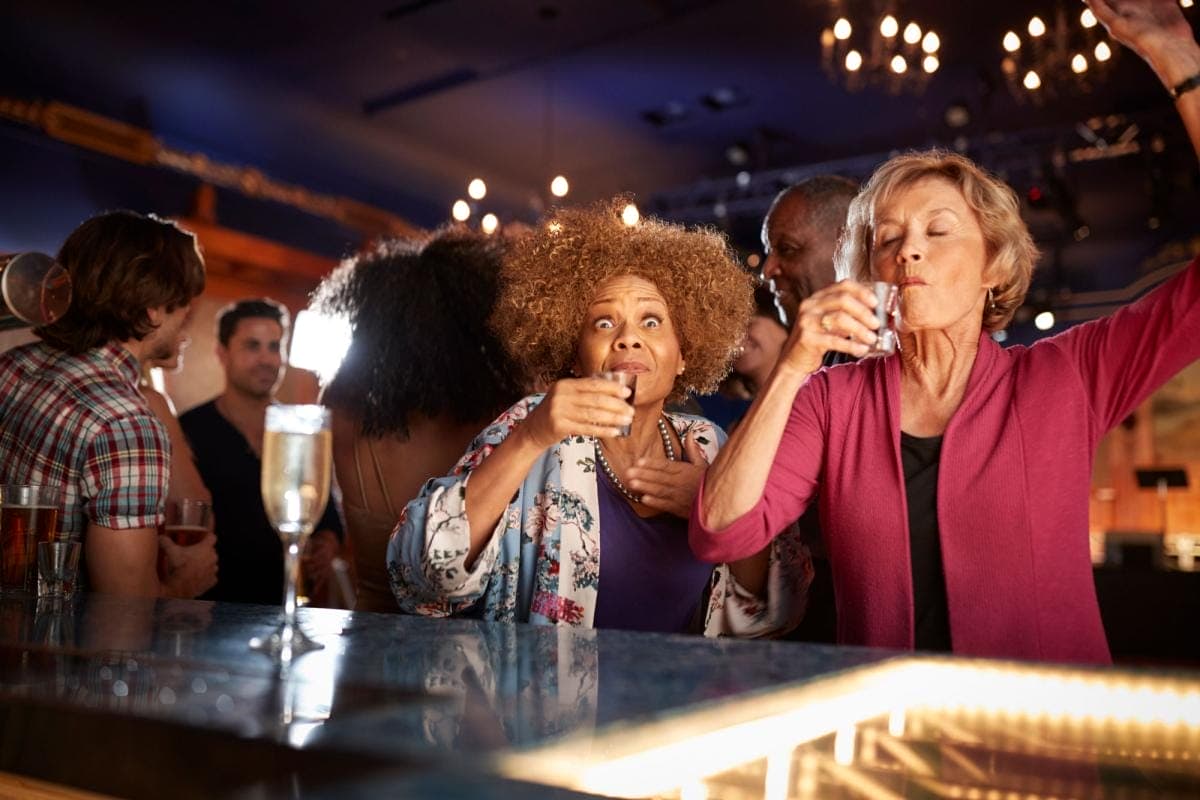If you click on links we provide, we may receive compensation.
Imagine looking in the mirror and noticing your skin looks tired, puffy, or even prematurely aged. While many factors can contribute to changes in our skin, overindulging in alcohol is a culprit that often flies under the radar. It’s not just about the occasional cocktail; consistent heavy drinking can wreak havoc on your skin’s health, making that morning-after glow a thing of the past. Here’s how your favorite drinks might be stealing your skin’s vitality—and what you can do about it.
The Dehydration Effect
Alcohol is a diuretic, which means it increases urine production and leads to dehydration. Dehydrated skin loses its elasticity, making fine lines and wrinkles more pronounced. If you’ve ever noticed your skin looking dull or flaky after a night of drinking, dehydration is likely to blame. Your skin cells need water to stay plump and healthy, and alcohol robs them of this vital resource.
This dehydration also affects your skin barrier, which acts as a shield against environmental stressors. A weakened barrier makes your skin more prone to irritation, redness, and even infections. To put it plainly, that glass of wine might feel like self-care, but it’s quietly undermining your skin’s defenses.
Inflammation and Redness: A Recipe for Rosacea
Ever felt flushed after a drink? That’s alcohol’s inflammatory effects at work. Alcohol increases blood flow to the skin’s surface, which can lead to broken capillaries, redness, and long-term skin issues like rosacea. According to the National Rosacea Society, drinking alcohol is a top trigger for flare-ups in people prone to the condition. And it’s not just wine or beer—hard liquor can be just as damaging.
But inflammation doesn’t stop at redness. Chronic inflammation accelerates the aging process, contributing to sagging skin and uneven texture. Think of inflammation as a silent saboteur, aging your skin from the inside out.
Nutrient Depletion and Collagen Breakdown
Your skin relies on a variety of nutrients to stay healthy, and alcohol disrupts their absorption. Vitamin A, for example, is crucial for skin repair and regeneration. Heavy drinking depletes your body’s stores, leaving your skin struggling to heal itself. This depletion also affects your collagen production—collagen being the protein that keeps your skin firm and youthful.
Over time, reduced collagen levels lead to sagging, fine lines, and loss of elasticity. If the goal is to age gracefully, alcohol might not be your skin’s best friend.

Puffiness and Dark Circles
Ever wake up after a night of drinking with swollen, puffy skin? Alcohol causes blood vessels to dilate, leading to water retention and puffiness, especially around the eyes. Combine this with poor sleep quality—a common side effect of drinking—and you have the perfect recipe for dark circles.
Chronic puffiness can stretch the delicate skin under your eyes, making it more prone to fine lines and wrinkles. So, while that second round might feel fun, your under-eye area could be paying the price.
Acne and Breakouts
Alcohol can indirectly contribute to acne by disrupting your hormonal balance and increasing oil production. Sugary cocktails and mixers, in particular, can spike your insulin levels, triggering breakouts. Even drinks that seem harmless, like tonic water, can have hidden sugars that affect your skin.
Moreover, alcohol affects your gut health, which has a direct connection to your skin. An unhealthy gut can manifest as acne, eczema, or dullness. In short, what you drink can show up on your face in ways you might not expect.
Long-Term Damage: Premature Aging
Over time, the cumulative effects of alcohol on your skin can lead to premature aging. Studies have shown that excessive alcohol consumption is linked to increased oxidative stress, a process that damages skin cells and accelerates aging. The antioxidants in your skin—which help combat free radicals—are depleted by alcohol, leaving your skin vulnerable.
A 2019 study published in Alcoholism: Clinical and Experimental Research found that heavy drinking is associated with higher levels of facial aging, including sagging cheeks and redness. The damage isn’t limited to your face; areas like your neck and hands can also show signs of alcohol-related aging.
Tips for Healthier Skin
The good news? Your skin is resilient, and small changes can make a big difference. Start by moderating your alcohol intake. Experts recommend limiting consumption to one drink per day for women and two for men.
Hydration is also key. For every alcoholic beverage you consume, drink a glass of water to offset its dehydrating effects. Incorporate foods rich in vitamins and antioxidants—like leafy greens, berries, and nuts—into your diet to support your skin’s recovery. And don’t forget skincare! Products with hyaluronic acid, ceramides, and retinol can help repair the damage.
Ultimately, the occasional glass of wine isn’t the enemy, but consistent overindulgence can take a toll. By being mindful of your drinking habits, you can protect your skin and enjoy a healthier, more radiant complexion.




